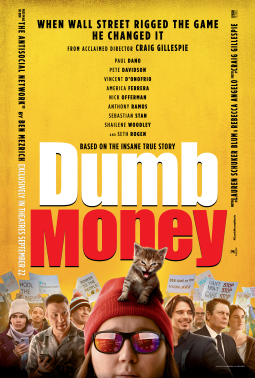Freddy vs. Jason
Posted on August 13, 2003 at 4:30 am
I hope needless to say, this extremely violent movie is only for the hard-core fans of the genre who are old enough not to be traumatized by it. Since I do not think I can be fair to these movies, this guest review was provided by the son of the Movie Mom, a 19-year-old fan of slasher movies who wanted me to give the movie an A-. Here’s what he had to say:
I was lucky enough to catch KISS in concert two days before I saw Freddy vs. Jason. Like KISS, the Freddy (“Nightmare on Elm Street”) and Jason (“Friday the 13th”) series have lasted for decades, are loved by ardent cult followings, and are hated by pretty much everyone else, especially parents and critics. The newest addition to the series will meet or surpass the expectations of the fans, while the heretics, I mean, deriders, will know to avoid it.
What is there to say about “Freddy vs. Jason?” The plot is ridiculous, and even if it made any sense it would be too pointless and too complicated to put down into a review. It’s just an excuse to have two of the scariest guys in movie history fight each other. Besides, the fans won’t want the key elements given away, and the plot isn’t what the naysayers want to hear about anyway. What both care about is the carnage.
It sure isn’t the characters or performances. Outside of the title characters, the cast is uninteresting, even interchangable; they’re only there to get killed anyway. Save for the classically trained Robert Englund, who reprises his role as the diabolical Freddy Krueger, there are no memorable performances, just busty, pouty-lipped girls in revealing clothing and stereotyped, drunk high school guys who scream and run and get gutted like fish. The highlights are definitely Freddy (of Nightmare on Elm Street fame) and Jason (of Friday the 13th fame), who kindly keep the audience from enduring the dumb teenagers for long, and join to engage in possibly the best movie fight you’re going to see all year, which is what we came to see. Cool, huh?
If you ask anyone why they love or hate these movies, they’d both probably answer with something like the above paragraph.
Freddy vs. Jason makes for a more interesting contrast than, say, Freddy vs. Chucky or Jason vs. Michael Myers would make, mainly because of the killers’ personalities. Whether you prefer killers like Jason who brood mutely while hulking towards you with a cleaver or killers like Freddy, a wild-eyed, deranged, wisecracking, sharp-fingered bloodthirsty hillbilly, no one will be left unsatisfied. The crowd I saw it with laughed, occasionally shrieked, and applauded, especially whenever Freddy cackled while slaughtering someone or Jason disembodied a victim. They obviously loved it, as will probably anyone who pays to see it. So much, in fact, that they’ll see the inevitable sequel. Sure, the chances of it even being considered for an Oscar nomination are even less than those of KISS ever getting a Grammy, but whether it’s a guilty pleasure or the film you’ve been anticipating ever since you first read about it on Wes Craven’s website, Freddy vs. Jason delivers.
Parents should know that the movie contains lots of nudity and some sex, lots of foul language, and characters who drink and do drugs. There is also an ambiguous date rape and a brief racial slur towards the only black character in the entire movie. Oh yeah, people are gutted, stabbed, impaled, torn apart, sliced open, burned, crushed, and killed in just about any way that produces lots of gushing blood. But if it’s any consolation to conservative parents, all the kids who engage in stupid behavior pay for it pretty heavily.
Families who see this movie should discuss the enduring appeal of slasher films, particularly the consistent theme that teens who have sex or use drugs get horribly killed. They may also want to talk about the impact a film like this has compared to more realistically portrayed violence as in “Saving Private Ryan.”
Families who enjoy this movie will also enjoy the others in the series as well as the clever and convention-challenging Scream.






